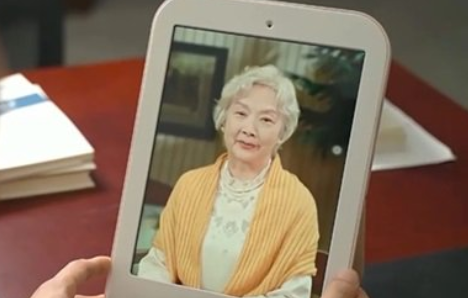Sun Kai, a Chinese tech executive, often finds solace by talking to a digital avatar of his late mother. Created by Silicon Intelligence, where Sun works, this AI-generated avatar looks and sounds like his mother, who passed away in 2018. The company is part of a growing trend of using AI to create chatbots that simulate deceased loved ones, a concept once relegated to science fiction but now increasingly common and affordable.
These AI avatars, sometimes called “deadbots,” raise ethical questions about the simulation of human beings, both dead and alive. While companies like Microsoft and OpenAI have internal committees to evaluate the ethics of their AI services, there is no centralized regulatory body overseeing these technologies in the U.S. or China.
Data is a significant bottleneck in creating these avatars. Companies like Silicon Intelligence and Super Brain need high-quality video and audio of the deceased to create convincing avatars, but often the available data is insufficient. Clients are asked to provide detailed memories and experiences to power the AI’s conversations.
In China, cultural taboos around discussing death are strong, but companies like Fu Shou Yuan are using AI to create digital cemeteries where visitors can access multimedia records of the deceased’s life. Despite the novelty, fewer than 100 customers have opted for these digital avatars.
Ethicists warn about the potential emotional harm these AI clones could cause. Philosopher Michel Puech highlights the risk of addiction and the replacement of real life with digital simulations, which could hinder the natural grieving process. Sun Kai, who disconnected his mother’s avatar from the internet to keep her memory unchanged, and Yang Lei, who created an avatar of his deceased uncle to comfort his grandmother, both acknowledge the complex emotions involved.
While the technology offers a unique way to preserve memories, it also prompts a deeper reflection on mortality and the true nature of human connection.
Key Points:
- Sun Kai, a Chinese tech executive, uses a digital avatar of his late mother for support, created by Silicon Intelligence.
- AI-generated avatars of deceased loved ones are becoming more common, raising ethical questions about simulating human beings.
- Creating these avatars requires high-quality data, often a challenge due to insufficient available material.
- Companies in China are using AI to create digital cemeteries, though adoption is still limited.
- Ethicists warn about the emotional risks of AI clones, which may hinder the grieving process and replace real-life experiences.
TL Holcomb – Reprinted with permission of Whatfinger News



